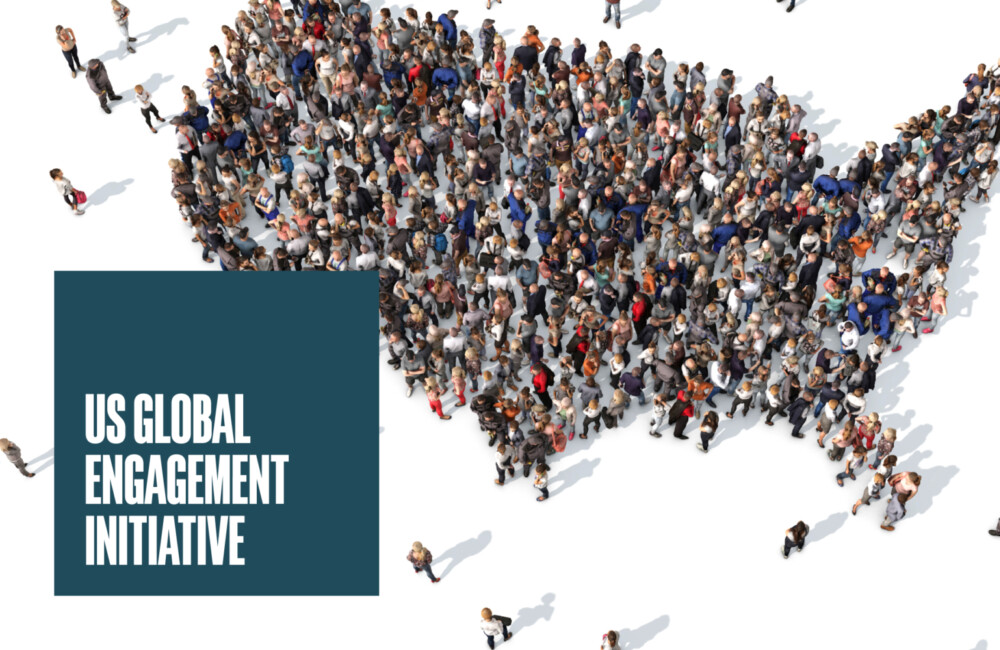Framing ethical perspectives
Multilateralism refers to a group of nations working together for a common goal. It is at the heart of international relations as nation-states form alliances with like-minded countries to take on global issues, such as climate, emerging technology, inequality, and collective security. Carnegie Council sees multilateralism as essential to generating solutions to global problems and a critical component of an ethical present and future.
Featured Multilateralism Resources
Inclusivity, AI & climate governance, and more
FEB 27, 2024 • Video
A Carnegie Council Conversation with the UK Home Secretary
MAR 28, 2024 • Video
Unlocking Cooperation: The Global South and Global North
In the inaugural panel of the "Unlocking Cooperation" series, Ramu Damodaran leads a discussion on forging a path forward for Global South/North collaboration.
OCT 18, 2023 • Video
Unlocking Cooperation: A Global Ethics Day Special Event
In this keynote event for Global Ethics Day 2023, Carnegie Council President Joel Rosenthal led a conversation on the psychology behind cooperation; ways that states, institutions, ...
Subscribe to the Carnegie Ethics Newsletter for more on ethics and international affairs
Related Initiatives
Model International Mobility Convention
The primary goal of the Model International Mobility Convention (MIMC) is to formulate new rules for migration and asylum that can benefit both migrants and refugees as well as their states of origin, transit, and destination.
Carnegie Ethics Accelerator
The Carnegie Ethics Accelerator is a new kind of incubator designed to empower ethics in the face of swiftly evolving challenges in technology and public policies.
Explore Our Multilateralism Resources

APR 2, 2009 • Article
Reverse China Hedge
Several factors might explain China's multifaceted approach toward the United States, including economic woes, uncertainty about how the financial crisis will play out, and an ...
MAR 18, 2009 • Podcast
Great Powers: America and the World after Bush
Military geostrategist Thomas P. M. Barnett argues that the 21st century will see the rise of a global middle class for the first time, which ...
MAR 10, 2009 • Podcast
Political Futures Mar 09 Segment 3: US Foreign Policy (4:53 mins)
Is the new U.S. administration off to a good start with its approach to foreign policy?

MAR 10, 2009 • Podcast
Ann Florini on Global Governance
Florini discusses the difference between "global government" and "global governance," intergovernmental organizations such as the UN, and the role and achievements of civil society and ...
FEB 2, 2009 • Article
Letter from the United States to Iran
In a possible letter from the United States to Iran, David Speedie writes of the two nations' shared interests, the causes that divide them, and ...

DEC 22, 2008 • Podcast
A Conversation on NATO
The post-Cold War NATO has expanded, both in mission and membership. In each instance, problems have arisen with Russia. What are the lessons to be ...
DEC 12, 2008 • Podcast
Devin Stewart Interviews Chong-Pin Lin
Dr. Lin discusses Taiwan's current political crisis; relations with China; climate change; the future of democracy in East Asia; what Obama's presidency may mean for ...

NOV 11, 2008 • Podcast
The Limits of Power: The End of American Exceptionalism
America is facing a profound triple crisis: the economy, the government, and an involvement in endless wars. This threatens all of us, Republicans and Democrats ...

NOV 4, 2008 • Podcast
The Shape of the World to Come: Charting the Geopolitics of a New Century
French intellectual Laurent Cohen-Tanugi argues that economic globalization exists in a complex dialectic with the traditional geopolitics that it has, ironically, helped to revive.

AUG 8, 2008 • Article
The New MAD World
The current system may be Cold War Lite in which noncooperation is the new mutual assured destruction (MAD). Yet if we fail to cooperate, our ...




